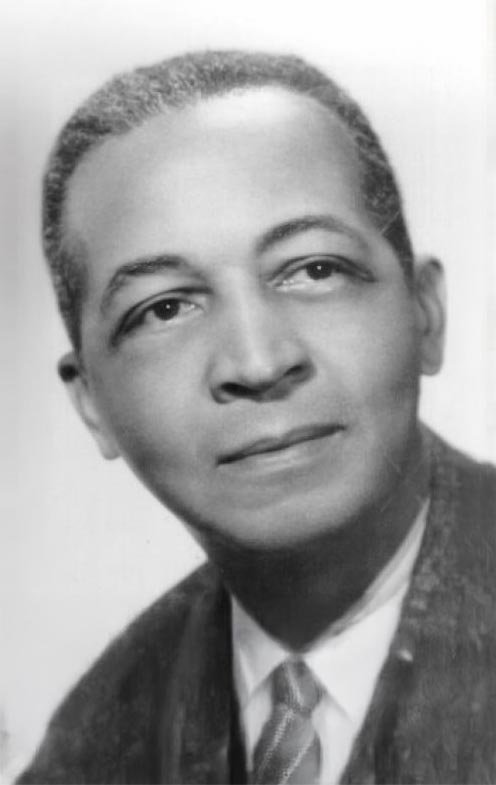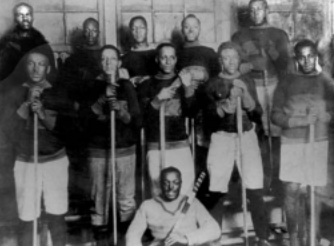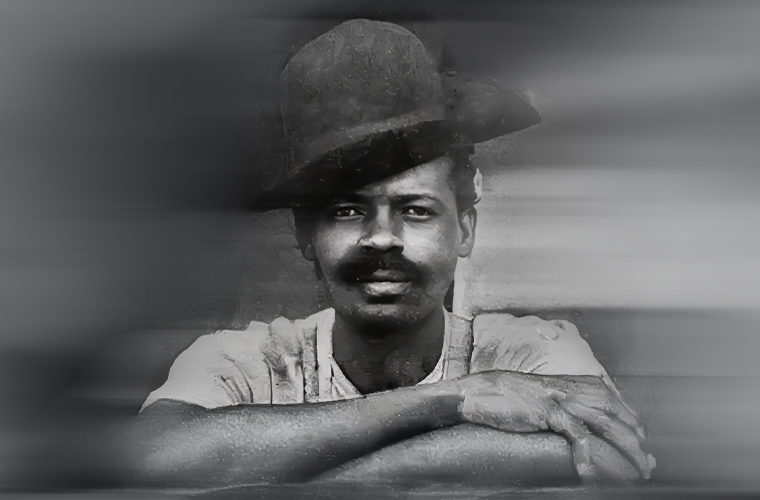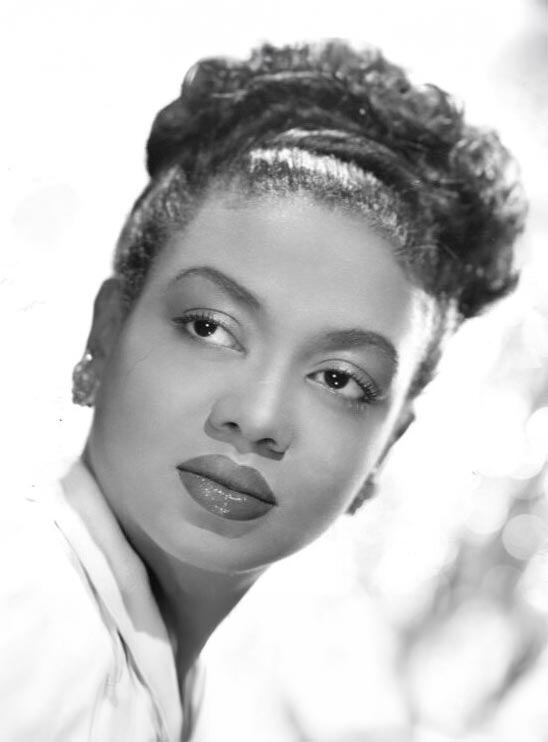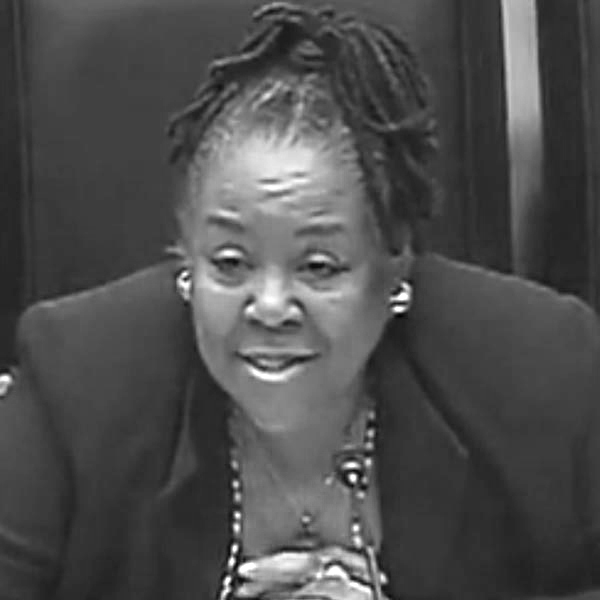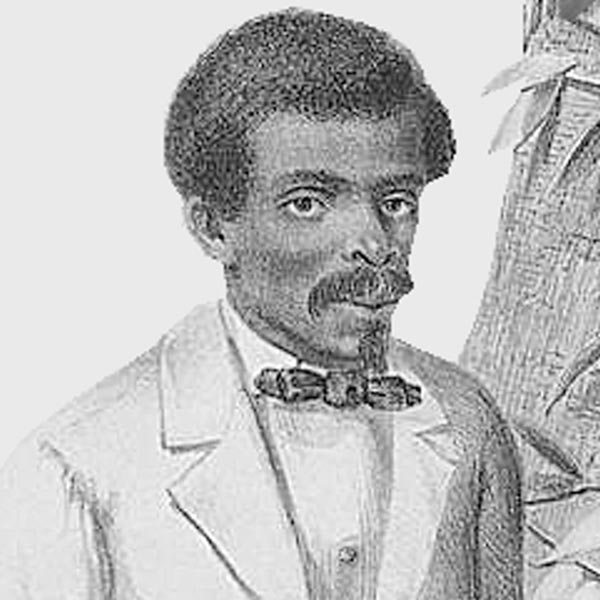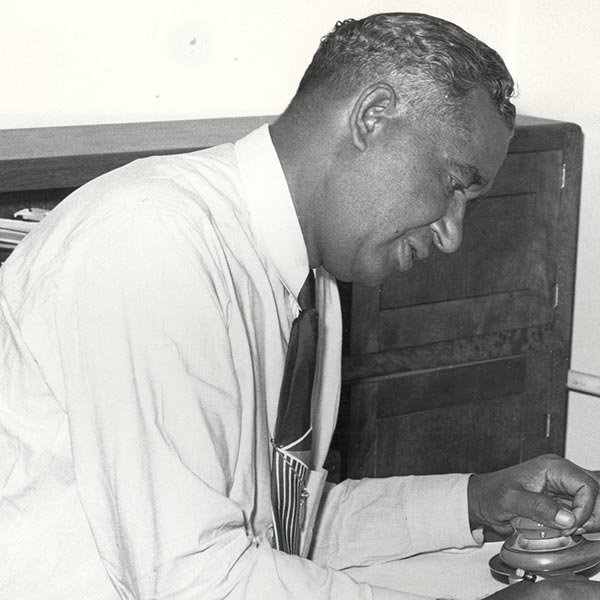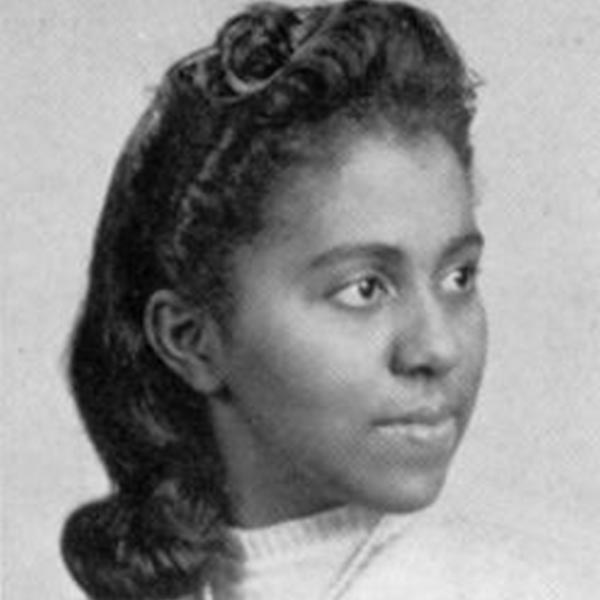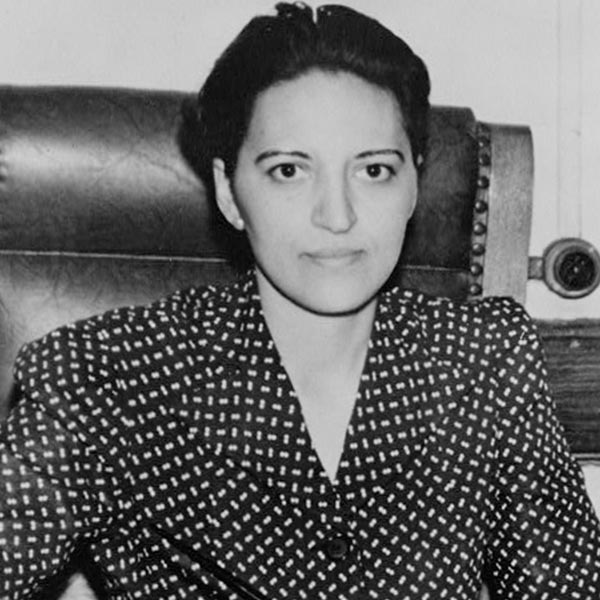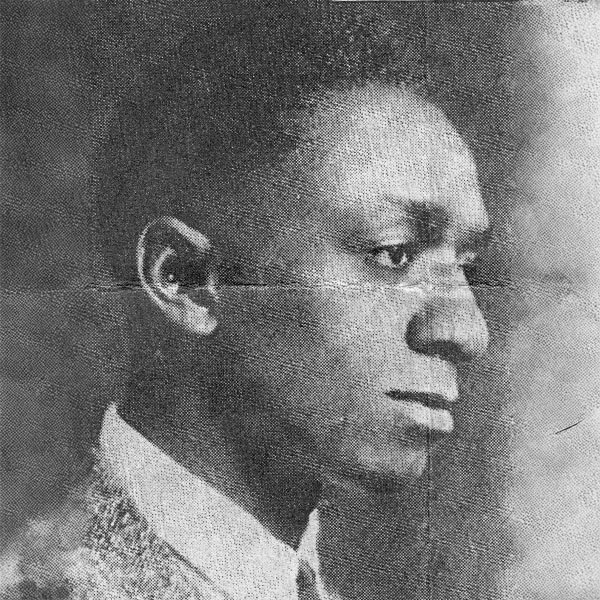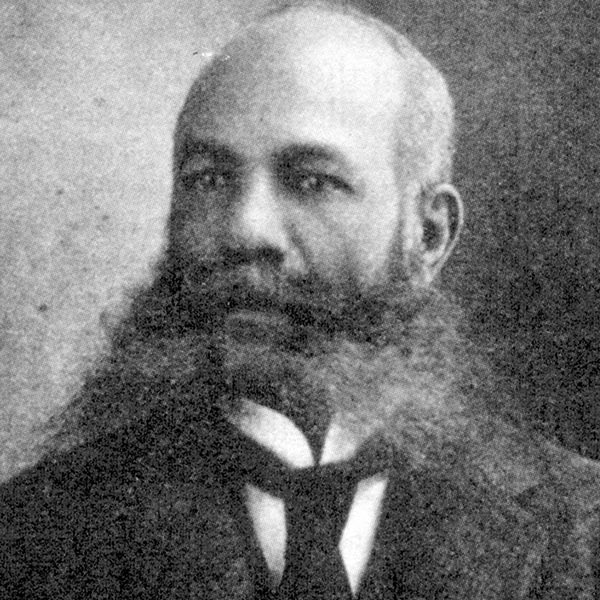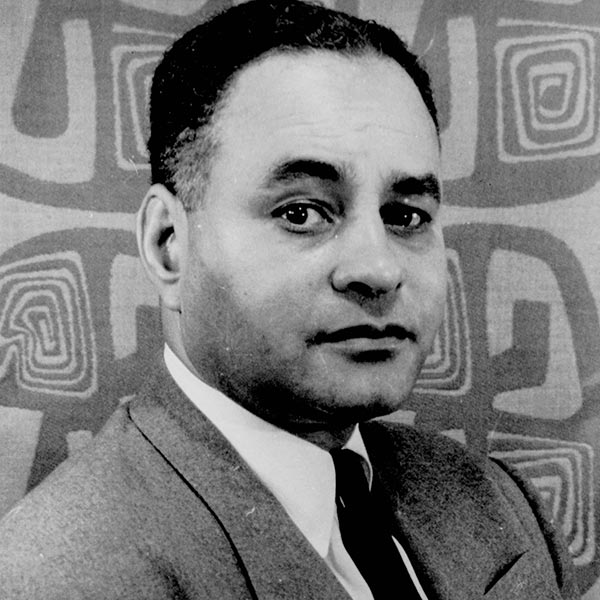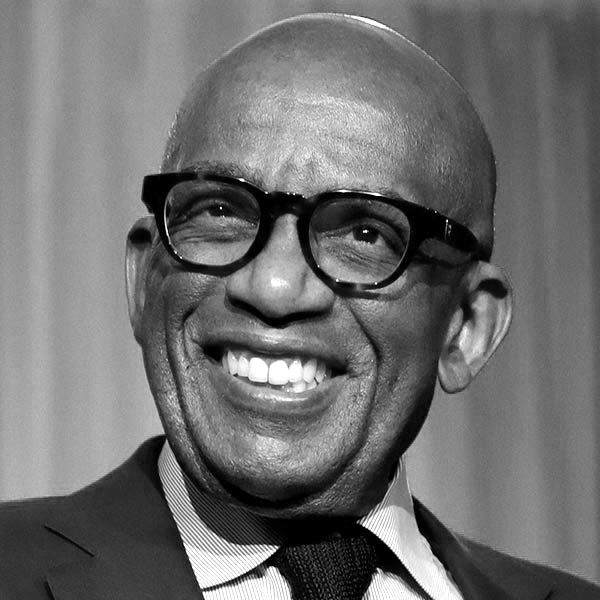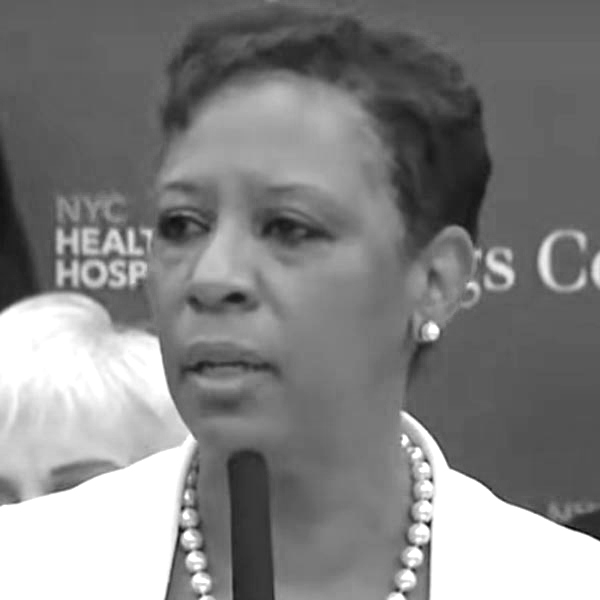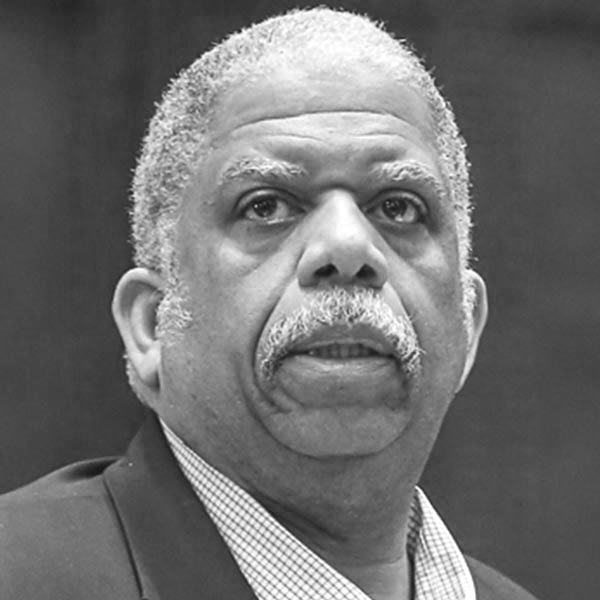Queensborough Celebrates Black History Month 2025
Black History Month, which began as Negro History Week, was created in 1926 by author and historian Carter G. Woodson. It became a month-long celebration in 1976. Black History Month is a time to reflect on and honor the rich history, culture, and ongoing contributions of Black people and acknowledge their collective struggle to gain full citizenship in American society.
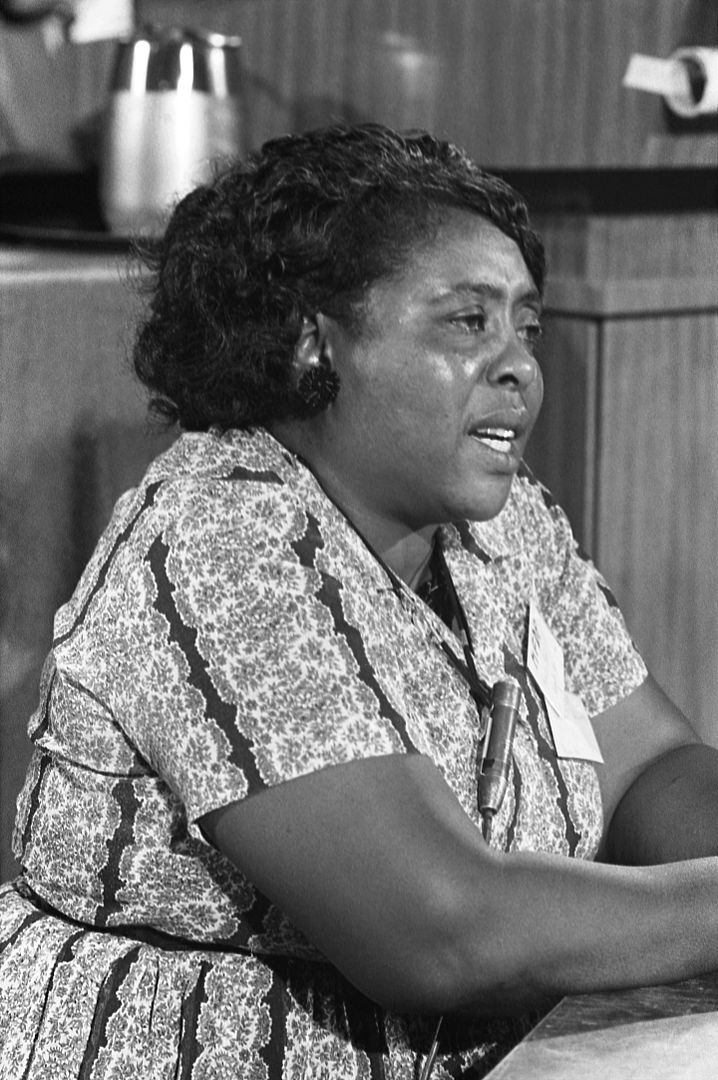
“Sometimes it seem [sic] like to tell the truth today is to run the risk of being killed. But if I fall, I’ll fall five feet four inches forward in the fight for freedom. I’m not backing off.”
— Fannie Lou Hamer, Civil Rights activist and voting rights pioneer
“You don’t make progress by standing on the sidelines, whimpering and complaining. You make progress by implementing ideas.”
— Shirley Chisholm, First black woman to be elected to Congress and the first black woman to have made a bid for the presidency of the United States

2025 Black History Month Events
Queensborough Community College celebrates Black History Month with music, art, panel discussions, and fun trivia! These events provide an opportunity to reflect on the rich history and contributions of the Black community in America while fostering a sense of community as we come together to celebrate.
Check out the campus' Black History Month events below!
Black History Month Kick-Off Event
Thursday, February 6, 2025 | 03:00 PM to 5:00 PM
Student Union Building, Upper Level
Black Film Trivia
Tuesday, February 11, 2025 | 01:00 PM to 3:00 PM
Student Union Building, Upper Level
Solidarity: Black History Month Art Show
Thursday, February 13, 2025 | 12:00 PM to 4:00 PM
Student Union Building, Upper Level
The Green Book: Guide to Freedom
Friday, February 14, 2025 | 12:00 PM to 2:00 PM
Student Union Building, Upper Level
Black Inventors Exhibit
Wednesday, February 19, 2025 | 12:00 PM to 4:00 PM
Student Union Building, Upper Level
In Open Contempt: Confronting White Supremacy in Art and Public Space | A Moderated Discussion
Wednesday, February 19, 2025 | 4:00 PM to 6:00 PM
Queensborough Performing Arts Center
Seizing Justice: The Greensboro 4
Friday, February 21, 2025 | 12:00 PM to 2:00 PM
Student Union Building, Upper Level
Black Mental Health and Wellness
Wednesday, February 26, 2025 | 12:00 PM to 2:00 PM
Student Union Building, Upper Level
Judas and the Black Messiah
Friday, February 28, 2025 | 12:00 PM to 3:00 PM
Student Union Building, Upper Level
Check back each week for additional events.
BFSA Black History Moment
Each weekday during Black History Month, the Black Faculty and Staff Association (BFSA) will highlight a different person.
The BFSA is a self-regulated group organized independently as the very first affinity group for faculty and staff at Queensborough. To learn more about the BFSA and see other highlights in their Black History Moment series, visit the BFSA website.
Feb. 3 - Jermaine Fowler
Jermaine Fowler is an American author, historian, podcaster, and advocate for social justice, best known for rethinking the narratives around Black history. A native of Kentucky, as a teenager, Fowler enjoyed visiting the Louisville Free Public Library and reading history. In 2023, he turned his passion for Black history into his book, The Humanity Archive: Recovering the Soul of Black History from a Whitewashed American Myth, a New York Times bestseller. His book traces Black history from ancient Africa to modern-day America. He challenges traditional views of American history by highlighting overlooked and marginalized contributions of Black communities. Jermaine Fowler’s popular podcast, The Humanity Archive, engages his audience in conversations about race, identity, and the importance of reclaiming lost narratives to build a more equitable future.
Feb. 4 - Lloyd Augustus Hall, PhD
Lloyd Augustus Hall, PhD., was an American chemist and food scientist known for his pioneering work in food preservation and flavor enhancement. Born on June 20, 1894, in Elgin, Illinois, Dr. Hall earned a Bachelor of Science degree from Northwestern University in 1914, a Master of Science in 1916, and a Doctoral degree in science from Virginia State College in 1944. After college, he worked at the famed Griffith Laboratories in Chicago, where he made significant strides in food science. Griffin implemented the use of chemical compounds, antimicrobial agents, protein hydrolysates, and Lecithin to prevent oxygen exposure from spoiling food. His work contributed to extending the shelf life of food, keeping meats and baked goods fresh and flavorful. Additionally, Dr. Hall amassed 59 patents and developed new processes for sterilizing spices and pharmaceuticals that are still used today. His contributions were critical during World War II when the military needed safe and long-lasting food products for soldiers. A proud member of Alpha Phi Alpha Fraternity, Inc., Dr. Hall died on January 2, 1971. After his death, Dr. Lloyd August Hall was inducted into the National Inventors Hall of Fame in 2004.
Feb. 5 - Colored Hockey League of the Maritimes
The Colored Hockey League of the Maritimes (CHL) was an ice hockey league that played from 1895 to 1930 in Halifax, Nova Scotia, in the Maritimes region of Canada. The league was created by Black Canadian athletes to build a hockey community in response to exclusion and segregation in mainstream sports. The CHL gained a reputation for its competitive play and innovation. The league was made up of several teams, including the Halifax Eurekas, the Dartmouth Jubilees, the Sydney Scotians, and the Glace Bay Miners. Oscar D. Murray, the first Black person to play professional hockey in Canada, started his career in the CHL. Murray’s involvement with the CHL helped set the stage for future generations of Black hockey players. CHL emphasized speed, skill, and a more fluid, dynamic hockey game. Goalies in the CHL were credited with popularizing the “butterfly” style of goaltending, where the goalie drops to their knees and spreads their legs to cover the net more effectively. This style became an essential part of modern play across hockey leagues worldwide. The rise of more integrated hockey leagues, such as the National Hockey League (NHL), and changing social dynamics contributed to the eventual disbandment of the CHL in 1930. The CHL’s legacy endures as a cornerstone of Black history in sports.
Feb. 6 - Nathan "Nearest" Green
Nathan “Nearest” Green was the first African American master distiller in the United States. Born enslaved in Maryland in 1820, he gained his freedom after the Civil War. Green worked on many farms and learned and perfected the art of making whiskey. Green’s distilling knowledge was likely passed down to him by generations of African American distillers who were skilled in the craft. In the 1850s, Green went to work for the Jack Daniel family in Lynchburg, Tennessee. Green taught Jack Daniel the process of distilling whiskey, and it was under Green’s guidance that Daniel perfected his recipe. Green’s contributions to whiskey production were key to Jack Daniel’s success. Nathan “Nearest” Green and his wife Harriet had 11 children together. Since the 1850s, seven generations of Green’s family have worked at Jack Daniel’s Distillery. In 2016, Jack Daniel’s Distillery officially recognized Green’s role by naming a special area of the distillery the “Nearest Green Distillery” and acknowledging his important work as the master distiller who influenced the production of their iconic whiskey.
Feb. 7 - Hazel Scott
Hazel Dorothy Scott was a pioneering Afro-Trinidadian American jazz pianist, singer, and actress. Born on June 11, 1920, in Port of Spain, Trinidad, her family emigrated to New York City when she was four. Raised by her mom, a musician, and her grandmother, she showed an early aptitude for the piano, and by the age of eight, she was already studying at Juilliard, one of the most prestigious music and art schools. Ms. Scott rose to prominence in the 1940s and 1950s, becoming one of the first African American women to achieve fame in both the jazz world and Hollywood. She gained significant recognition for her unique blend of classical technique and jazz improvisation. Scott also made a name for herself in Hollywood, becoming one of the few Black women in the film industry to be given prominent roles during the 1940s. She appeared in I Dood It (1943), The Heat's On (1943), and Rhapsody in Blue (1945), where she showcased her acting and musical talents. In 1950, The Hazel Scott Show premiered on television, making Scott the first African American woman to host her own TV show. Scott was one of the early entertainers to use her platform to address racial inequality. She refused to perform in segregated venues and was deeply involved in advocating for better treatment of Black performers in Hollywood. Hazel Scott was married to Adam Clayton Powell Jr., who became the first African American to be elected to Congress from New York. They had one son, Adam Clayton Powell III, who would go on to work in the fields of journalism and media. The couple divorced in 1960. Hazel Scott passed away on October 2, 1981, at the age of 61. She had lived much of her later years away from the public eye, residing in France for a time. She is buried in Flushing Cemetery in Flushing. Queens.
Feb. 10 - Ramona Hoage Edelin
Ramona Hoage Edelin was a prominent American educator and leader in the field of education and civil rights. She made significant contributions to improving educational access and equity, particularly for Black students. Ramona Hoage Edelin was born in 1948 in Washington, D.C. She attended public schools in D.C., and her public-school experience heightened her awareness of the disparities that affected Black students. She earned her bachelor's degree from Fisk University in 1969, graduating Phi Beta Kappa. She earned her master's degree at the University of East Anglia in 1969 and her PhD in philosophy in 1981 at Boston University. One of her notable roles was as the Executive Director of the National Alliance of Black School Educators (NABSE). Through this role, Dr. Edelin worked tirelessly to bring attention to the disparities in education and push for policies that would address the needs of African American students. Additionally, Dr. Edelin significantly popularized the term “African American,” advocating for its use to refer to Black Americans, particularly through her work alongside Reverend Jesse Jackson in the late 1980s. She believed the term “African American” provided historical context and connected Black Americans to the larger African diaspora and the continent. Ramona Hoage Edelin died in Washington, DC, on February 19, 2024, at the age of 78. Dr. Edelin’s dedication to transforming the educational system for the better has made her a respected figure in American education, and her work continues to impact future generations of educators, students, and communities.
Feb. 11 - Edmond Albius
Edmond Albius was an Afro-Creole from the island of Réunion, off the southeast coast of Africa. He is widely recognized for his groundbreaking contribution to the vanilla industry. Born an enslaved person in 1829, his mother died in childbirth. In 1841, at age twelve, he made a monumental discovery that would change the vanilla industry forever. While working on a vanilla plantation, Albius observed that the vanilla flower, native to Central America and introduced to Réunion Island, was unable to self-pollinate in the island’s tropical climate. He developed a method to hand-pollinate the vanilla flower using a small stick or blade of grass to transfer pollen from the male part of the flower to the female part. This technique enabled vanilla plants to produce beans and be cultivated successfully outside of their native environment for the first time. Albus’ technique revolutionized the vanilla industry, making it possible to grow vanilla on a global scale. Today, the method of hand pollination that Albius pioneered is still in use worldwide. Edmond Albius died in 1880, largely uncelebrated for his monumental contribution to the vanilla industry and commerce. The full extent of his impact on global agriculture was not widely acknowledged until much later.
Feb. 12 - Frederick McKinley Jones
Frederick McKinley Jones was an African American inventor, engineer, and entrepreneur best known for his groundbreaking work in refrigeration. Jones was born on May 17, 1893. Although he did not have a formal high school education and was largely self-taught, he had a natural talent for understanding complex mechanical and electrical systems. Throughout his career as an engineer, he made many contributions to modern life. He developed refrigeration technology, particularly for transport and food preservation. At the time, food and medicine could not be easily transported without spoiling, especially over long distances. Developed in 1935, refrigerated transport enabled the safe shipment of perishable goods like food, dairy, and pharmaceuticals over long distances. The system was later used extensively during World War II. In 1938, Jones founded the U.S. Thermo Control Company, now known as Thermo King. In 1940, Jones received a patent for his refrigerated truck system, which was one of the earliest and most successful methods of mobile refrigeration. Additionally, he contributed to the development of cooling systems for aircraft, ensuring that sensitive equipment and supplies were protected from the harsh conditions of high-altitude flight. In his lifetime, Jones applied for and received sixty-one patents. He died in 1961 in Minneapolis, MN. In 1991, he was posthumously inducted into the National Inventors Hall of Fame for his work on refrigeration. He is now regarded as one of the most important inventors in American history.
Feb. 13 - Marie Maynard Daly
Marie Maynard Daly was the first African American woman in the United States to earn a PhD in chemistry. Born in Corona, Queens, on April 16, 1921, she was interested in the sciences from an early age. She enrolled in Queens College, CUNY, and earned a bachelor’s degree in chemistry in 1942. Daly went on to pursue a master's degree in chemistry at New York University. In 1947, Dr. Daly made history as the first African American woman in the United States to earn a Ph.D. in chemistry when she received her PhD from Columbia University. Daly’s research and contributions to the field of biochemistry were groundbreaking. Dr. Daly conducted pioneering research on how high blood pressure and cholesterol levels are linked to the risk of heart disease. Daly also made important contributions to endocrinology (the study of hormones) and enzymology (the study of enzymes). Dr. Daly died on October 28, 2003. Her groundbreaking work in biochemistry and her contributions to the understanding of hypertension, cholesterol, and heart disease helped pave the way for future scientific advancements and opened doors for women, particularly women of color, in the sciences. In 2016, P.S. 360 in St. Albans, Queens, was named the Dr. Marie M. Daly Academy of Excellence in her honor.
Feb. 14 - Judge Jane Matilda Bolin
Jane Matilda Bolin was a trailblazing African American lawyer who became the first Black woman to serve as a judge in the United States. The Honorable Jane Bolin was born in Poughkeepsie, New York, on April 11, 1908. She attended Wellesley College and earned her bachelor's degree in 1928. She then went on to earn her law degree in 1931, becoming the first Black female to graduate from Yale Law School. In 1932, she became the first Black woman to join the New York City Bar Association. In 1939, Jane Bolin made history by becoming the first African American woman to be appointed as a judge in the United States. She was appointed to the Domestic Relations Court of New York City (now the Family Court) by Mayor Fiorello La Guardia. Throughout her tenure on the bench, Judge Bolin worked tirelessly to improve the lives of children and families in the court system. Her work often involved cases related to juvenile delinquency, child welfare, and family matters, and she was known for her compassion and dedication to justice. In addition to her work on the bench, Judge Bolin was a strong advocate for civil rights and equality. She was deeply involved in the NAACP and played a role in various civil rights efforts, including supporting the fight against racial discrimination in the legal system. Judge Jane Bolin died at the age of 98 on January 8, 2007, in Long Island City, Queens. Her groundbreaking career in law, particularly in the field of family and juvenile law, made a lasting impact on the judicial system, and she is remembered as a pioneering figure in both the legal profession and the civil rights movement.
Feb. 17 - Bill Powell
Bill Powell was an African American golf course owner, operator, and one of the most significant figures in the history of golf. Born on December 29, 1928, in Leslie, Michigan, Powell was determined to carve out a path in a sport that had historically excluded African Americans, particularly in ownership of and access to golf courses. After serving in the U.S. Army during World War II, Powell made history in 1946 when he and his wife Marcella opened the Clearview Golf Course in East Canton, Ohio. It was the first golf course in the United States to be owned and operated by an African American. The course provided access to the game for Black golfers who were excluded from many of the nation's private courses. Powell’s efforts extended beyond the golf course. He was a mentor to young golfers and a figure in the movement toward racial equality in the sport. In 1978, Clearview Golf Course was listed on the National Register of Historic Places, solidifying its significance in American golf history. In 1995, Powell was inducted into the Ohio Golf Hall of Fame for his pioneering efforts. Bill Powell passed away on September 30, 2021, at the age of 92. His passing marked the end of an era, as he had lived a life dedicated to the game of golf and to breaking down the racial barriers that had long excluded African Americans from the sport.
Feb. 18 - Alexander Miles
Alexander Miles was born on May 18, 1839, in Dodgeville, Wisconsin. He later moved to Minneapolis, Minnesota, where he worked as a barber, inventor, and businessman. In 1887, Miles was granted a patent for an automatic elevator door system, which he designed to prevent accidents. Before Miles’ invention, elevator doors had to be manually operated. If the doors were not closed properly, people could accidentally fall into the open shaft, causing serious injury or death. Miles’ patented system allowed elevator doors to automatically close and lock, preventing access to the elevator shaft when the elevator was not present on a particular floor. Miles was granted U.S. patent No. 371,207 on October 11, 1887, for his automatic mechanism. The invention of the automatic elevator door system was critical to the development of modern elevators. This safety mechanism is still in use today in elevators around the world, making Alexander Miles' contribution to public safety and transportation enduring and invaluable. Alexander Miles passed away on May 7, 1918, at the age of 78. In recognition of his work, Miles was posthumously inducted into the National Inventors Hall of Fame in 2007, highlighting the significance of his invention.
Feb. 19 - Dr. Ralph Bunche
Ralph Bunche was a diplomat, academic, and civil rights leader who became the first African American to receive the Nobel Peace Prize. Bunche was born on August 7, 1904, in Detroit, Michigan. He was an excellent student and attended the University of California, Los Angeles (UCLA), graduating with a bachelor’s degree in political science in 1927. He later earned a master’s degree in 1928, and a PhD in political science in 1934 from Harvard University, becoming the first African American to earn a PhD in political science from an American university. Dr. Bunche joined the United Nations in 1947, where he quickly became involved in complex peace negotiations. He was instrumental in the 1948 Armistice Agreements that helped bring an end to the first Arab-Israeli War. Dr. Bunche's diplomatic skill and ability to mediate between conflicting parties earned him widespread recognition and respect. In 1950, he became the first African American to receive the Nobel Peace Prize, an extraordinary accomplishment that helped to highlight his role as a leading international mediator. In addition to his work in international diplomacy, Dr. Bunche was deeply involved in the civil rights movement and active with the NAACP. His achievements in diplomacy and civil rights made him a prominent figure in global politics. Dr. Bunche held several prominent roles within the United Nations. He was appointed the Under-Secretary-General of the UN in 1968, where he continued work in international peacekeeping efforts. Dr. Bunche's contributions were formally recognized in many ways, including his induction into the National Academy of Sciences. Dr. Bunche died on December 9, 1971, at the age of 67. Dr. Bunche's name remains synonymous with excellence in diplomacy and commitment to racial equality.
Feb. 20 - Al Roker
Al Roker is an African American television personality, weathercaster, and author best known for his work on the NBC Today Show. Over his decades-long career, he became one of the most recognized faces in American broadcasting, making impacts in both journalism and entertainment. Al Roker was born on August 20, 1954, in St. Albans, Queens, to Isabel, his Jamaican mom, and Al Roker Sr., his Bahamian father, who was a bus driver. He graduated from SUNY Oswego with a bachelor’s degree in communications in 1976. Al Roker's career in broadcast journalism began in the 1970s. His first major job in weather reporting came at WTVH in Syracuse, New York. He later worked at WWBT in Richmond, Virginia, and WMAQ-TV in Chicago before landing his role at NBC in 1983. In 1996, Roker became the weather anchor for the NBC Today Show, a role he still holds today. His engaging personality and relatable style helped to reshape the traditional role of the weather anchor, turning it into a more integral part of the program’s format. In 2014, Roker set a Guinness World Record for the longest continuous live weather broadcast. He remained on air for an astonishing 34 hours during NBC’s coverage of the Macy’s Thanksgiving Day Parade, which solidified his status as one of the most influential weather broadcasters in the country. Al Roker has written thirteen books, including a 2002 memoir, Don't Make Me Stop This Car, and a 2013 children's book, Big Snow, which reflects his love for weather and education. He has also won a remarkable fourteen Emmy awards. Roker has been an advocate for health issues and public awareness. He disclosed his struggles with bariatric surgery and weight loss in the early 2000s, which led him to become a vocal advocate for health and wellness. Al Roker is married to Deborah Roberts, an ABC News correspondent. The couple married in 1995 and have two children together: Nicholas and Leila. Al Roker has also been a pioneering African American presence in a traditionally white-dominated industry, becoming a role model for future generations of broadcasters, meteorologists, and journalists.
Feb. 21 - Adrienne Eadie Adams
Adrienne Eadie Adams is a prominent African American politician. As the first Black woman to serve as Speaker of the New York City Council, Adams has made contributions to the city’s legislative landscape, focusing on equitable policy, housing, and public safety. Adrienne Adams was born on December 9, 1960, in Hollis, Queens. She was deeply influenced by her community's needs and challenges, shaping her future as a dedicated public servant. After graduating from Bayside High School, Adams began her college journey at York College, CUNY, and earned her bachelor’s degree in psychology from Spelman College in Atlanta, Georgia, one of 107 Historically Black Colleges and Universities (HBCU) in the United States. In 2017, Adrienne Adams was the first woman elected to represent NYC Council District 28, which includes the neighborhoods of Jamaica, South Ozone Park, Richmond Hill, and Rochdale Village. In 2022, Adrienne Adams made history as the first African American woman elected as the Speaker of the New York City Council. As Speaker, she presides over the Council and plays a crucial role in shaping the city’s budget, policies, and laws. Adams has been a strong advocate for affordable housing, public education, and police reform. A proud member of Alpha Kappa Alpha Sorority, Incorporated, she often shares stories of her grandchildren on social media.
Feb. 24 - Nicki Minaj
Nicki Minaj is a Trinidadian American rapper, singer, songwriter, and businesswoman. She is one of the most influential and successful women in modern hip-hop, known for her unique style, bold persona, and groundbreaking contributions to the music industry. Nicki Minaj was born Onika Tanya Maraj in Saint James, Trinidad, on December 8, 1982. At the age of five, Minaj moved to South Jamaica, Queens, with her mother after her father struggled with addiction issues. She grew up in a difficult environment and has spoken about the challenges of her upbringing, including witnessing abusive behavior toward her mother. Nicki Minaj first gained attention in the music industry by releasing a series of mixtapes in the late 2000s, including Playtime Is Over in 2007 and Beam Me Up Scotty in 2009. Her distinct delivery, use of alter egos, and bold, larger-than-life persona helped her stand out in the male-dominated hip-hop scene. In 2010, Minaj signed with Young Money Entertainment, a label founded by Lil Wayne. Her 2010 debut studio album, Pink Friday, catapulted her to international fame. Her ability to seamlessly blend hip-hop, pop, and R&B, along with her energetic performances and colorful fashion, set her apart in the music industry. Her unapologetic personality, diverse musical style, and bold visual aesthetics, often incorporating extravagant wigs, costumes, and makeup, have influenced artists across musical genres. Minaj's success has also sparked conversations about gender dynamics in hip-hop, as she navigated a landscape historically dominated by men. Aside from music, Minaj has ventured into acting, television, and business. She appeared in The Other Woman in 2014 and Barbershop: The Next Cut in 2016. Minaj’s business ventures include endorsements, fashion collaborations, and a fragrance line. She has used her platform to advocate for causes such as women’s empowerment, LGBTQIA+ rights, and mental health awareness.
Feb. 25 - Leroy G. Comrie
Leroy G. Comrie, Jr. is an African American politician known for making significant contributions to public service, education, housing, and social justice. Leroy Comrie was born on August 10, 1958, to Jamaican parents who resided in Bricktown, Queens. He graduated from Jamaica High School and earned a bachelor’s degree from the University of Bridgeport in Connecticut. Comrie's public service career began in the 1990s. He worked his way up from legislative aide to chief of staff in the office of New York City Councilmember Archie Spigner. In 2001, he was elected to represent the 27th Council District in Queens. Comrie committed to improving public education, affordable housing, and economic development in his district. In 2016, After serving on the City Council for over a decade, Comrie was elected to the New York State Senate representing the 14th Senate District in Queens, which includes Cambria Heights, Jamaica, Queens Village, Hollis, St. Albans, Laurelton, Jamaica Estates, Briarwood, Hillcrest and Kew Gardens. State Senator Comrie is the chair of the Senate Committee on Corporations, Authorities, and Commissions and continues to champion policies that support working-class families, address homelessness, and promote education and job opportunities. He lives with his family in St. Albans, Queens.
Feb. 26 - Zendaya
Zendaya is an African American actress, singer, and producer who has achieved international recognition for her roles in television and film. She is celebrated for her versatile acting talent, fashion sense, and activism, particularly in promoting diversity and inclusion in Hollywood. Zendaya Maree Stoermer Coleman was born on September 1, 1996, in Oakland, California, to a German-Scottish mother and African American father. She attended Oakland School for the Arts and later studied at the American Conservatory Theater. Zendaya first gained national recognition as a teenager with her role in the Disney Channel series Shake It Up where she played the role of Rocky Blue. The show was a major success and helped establish her as a household name. In addition to her acting career, Zendaya pursued music. She released her debut single, Swag It Out, in 2011, followed by the release of her self-titled debut album in 2013. After Shake It Up, Zendaya starred in her own Disney Channel series, K.C. Undercover from 2015 to 2018, where she played K.C. Cooper, a teenager who is also a secret agent. Zendaya transitioned to film and gained widespread critical acclaim for her role in Spider-Man: Homecoming in 2017. Her portrayal was praised for its wit and charm, and she reprised the role in subsequent Spider-Man films. In 2019, Zendaya starred in Euphoria, an HBO drama series where she portrayed a teenager grappling with addiction. Her performance earned her a Primetime Emmy Award in 2020 for Outstanding Lead Actress in a Drama Series. She made history with this win, becoming the youngest recipient to win an award in this category. She also starred in Dune in 2021, a critically acclaimed adaptation of Frank Herbert’s science fiction novel. Zendaya has become a fashion icon, known for her bold and innovative red carpet looks. She has used her platform to promote body positivity, self-expression, and inclusivity in the fashion industry. Beyond her career, Zendaya is an outspoken advocate for social justice issues, including racial equality, LGBTQIA+ rights, and mental health.
Feb. 27 - Stacie NC Grant
Stacie N.C. Grant is a well-respected motivational speaker, author, and leadership coach recognized for her work in empowering individuals, particularly women, to live purpose-driven lives. The Cambria Heights, Queens, native is currently the 26th International President of Zeta Phi Beta Sorority, Incorporated. A graduate of St. John’s University in Jamaica, Queens, she is the CEO of C&G Enterprises Unlimited, a Minority and Women-Owned Business Enterprise (MWBE) headquartered in Queens. Dr. Grant is also the founder of Destiny Designers University® a training and development program for Faithpreneurs® (faith-based entrepreneurs and faith-based professionals). As a media personality and producer, Dr. Grant hosts several shows on YouTube’s Destiny Designers TV Network. Dr. Grant said her greatest joy is from serving others in the areas of personal development, leadership, and faith-based empowerment, and she uses her platform to encourage people to overcome obstacles and achieve their potential.
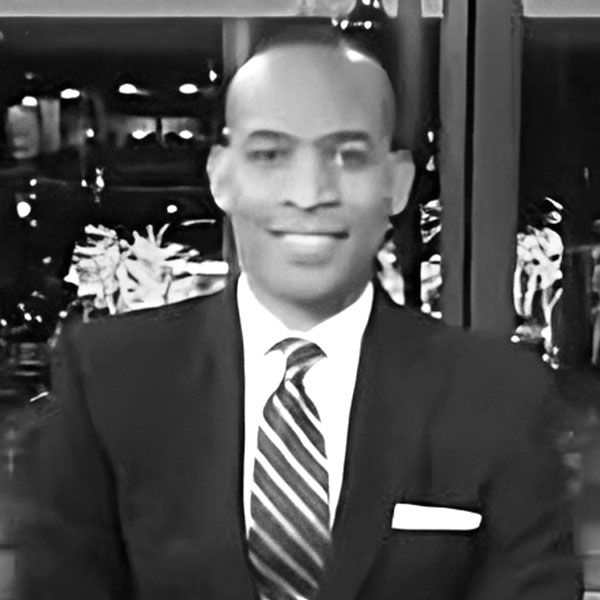
Feb. 28 - Tarik Turner
Tarik Turner is a former basketball player who gained recognition for his skills on the court, in broadcasting, and finance. A graduate of St. John’s University in Queens, Turner was a four-year varsity athlete and co-captain of the Men’s Basketball team. He earned the Scholar-Athlete of the Year award while leading the team to the National Collegiate Athletic Association (NCAA) Tournament. Additionally, Turner is an engaging sports broadcaster and basketball analyst with Fox Sports and CBS Sports. As an expert commentator, Turner makes the game come alive for basketball fans. Presently, he is Managing Director at Alliance Bernstein in Equity Sales Trading, and he is known for delivering high-quality execution results, leadership, and astute market analysis. Throughout his professional career, Turner has been committed to developing strategies to increase representation and create a more equitable and inclusive environment for underrepresented groups in the workforce. He serves as a member of the Board of Trustees for St. John’s University, and he is a board member for Team First a nonprofit program for youth from underserved communities.


